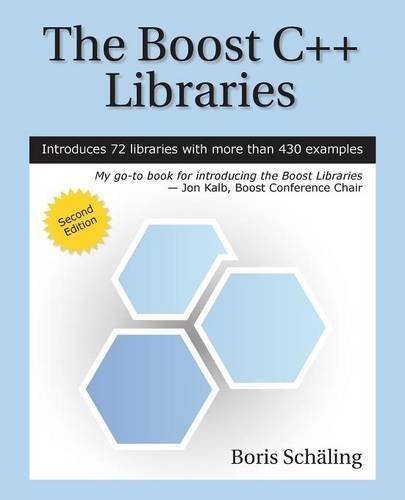
Recently on biicode:
Template Metaprogramming with Modern C++: Templates in Depth
by Manu Sánchez
From the article:
The last time we learnt what metaprogramming was, how metaprogramming in C++ via templates works, and the functional spirit of the embedded language that C++ template metaprogramming is. In this post we will learn C++ templates in depth: Class and function templates, template parameters, variadic templates, all with in depth examples. ...
... Then the fact that the compiler only generates code which actually does something (All syntactic sugar that high-level constructs provide is thrown away):
int main() { return Fibonacci<5>::value; }
GCC 4.9 -std=c++11 -O0x86 target:main: # @main movl $55,

 A nice tutorial on a feature that leads to convenient and safe calling code:
A nice tutorial on a feature that leads to convenient and safe calling code:
 The second edition of Boris Schäling's "The Boost C++ Libraries" is now available in print form and (free) online. The print edition is
The second edition of Boris Schäling's "The Boost C++ Libraries" is now available in print form and (free) online. The print edition is